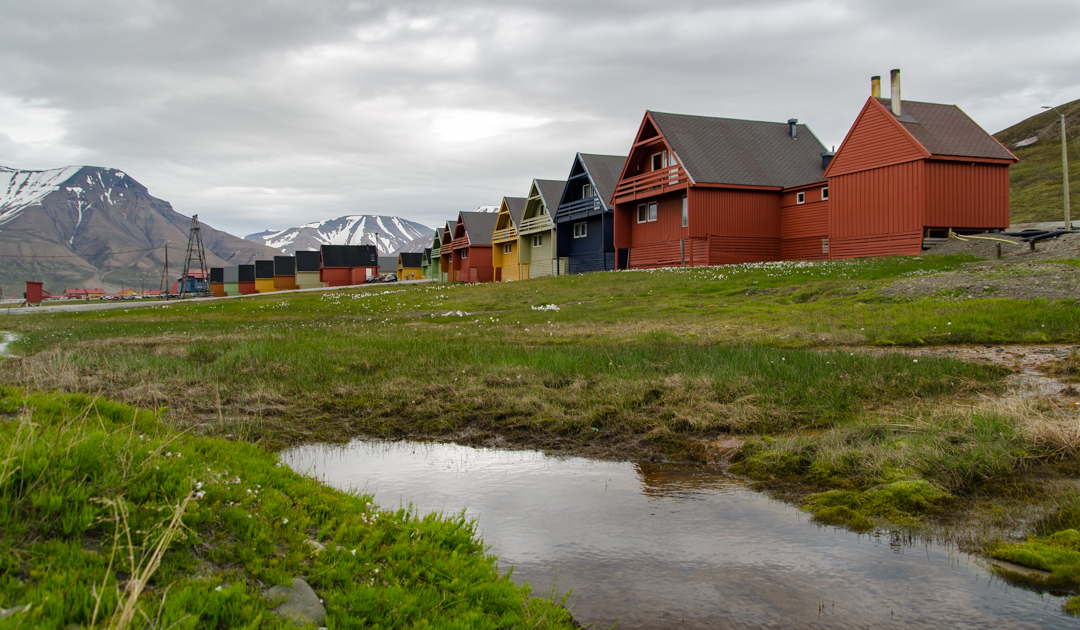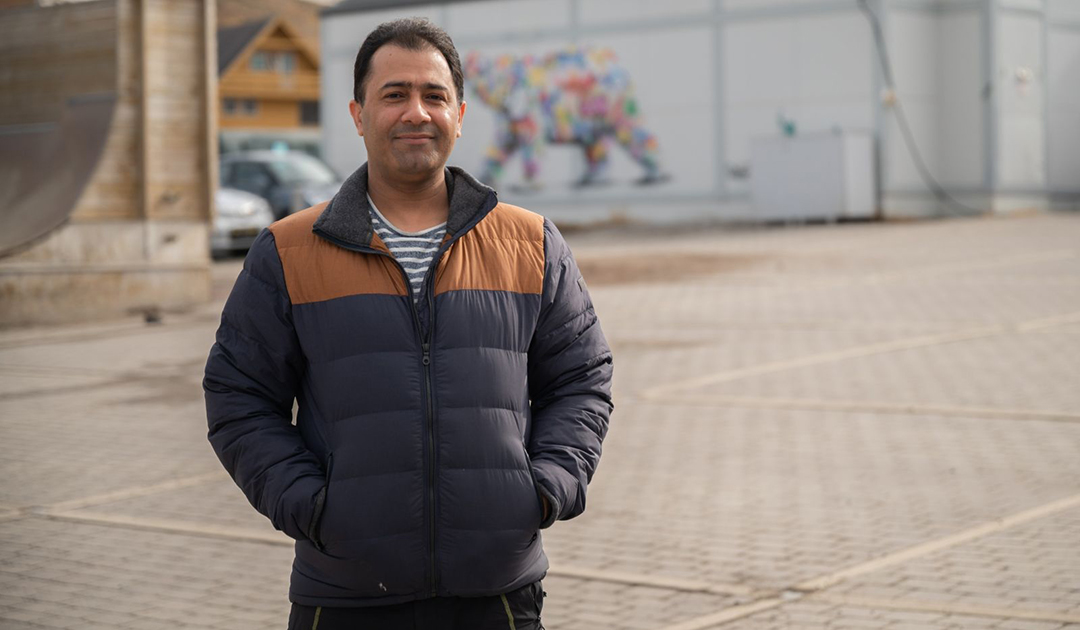UPDATE: Yesterday, late in the afternoon, Svalbardposten, the local newspaper in Longyearbyen, reported that Norwegian Minister of Justice Monica Maeland would lift travel restrictions on Non-EU/EEA residents in Longyearbyen. This means that ALL residents of Svalbard are allowed to travel to the Norwegian mainland without restrictions. Svalbardposten, however, asked for more details. We’ll keep you posted.

While Norwegian citizens from the mainland will be allowed to spend their holidays on the Svalbard archipelago again from 1 June, inhabitants of Svalbard, who hails from a non-EU/EEA state, are not allowed to travel to the mainland – neither for a holiday nor for family visits. This is despite the fact that Svalbard has been virus-free since the beginning of the Corona pandemic. The Norwegian Immigration Department only issues an entry permit in exceptional cases.
Third-country nationals who permanently live on Svalbard and still try to enter the Norwegian mainland are threatened with deportation to their home countries. The government has stipulated that the borders for foreigners will remain closed until August 20th, with a re-evaluation on June 15th of whether citizens of other northern European countries may be allowed to re-enter earlier. For third-country nationals residing on Svalbard, entry is only permitted for medical reasons or if a birth is imminent. EU/EEA citizens living and working in Norway are allowed to enter on the basis of appropriate documents.
Local officials, including Arild Olsen, the mayor of Longyearbyen, are hoping for a change in the rules. But the prospects for Svalbard’s foreign residents, who make up about 35 percent of the population, are not good, because the government’s guidelines require foreign immigrants to return to their home country rather than to Svalbard.

Even couples with one of the partners from Norway and the other from a third country, i.e. a non-EU/EEA citizen and a Schengen visa, are not allowed to holiday together on the mainland. According to the Norwegian Immigration Agency (UDI), only travel with a change-over on the Norwegian mainland is allowed, but no travel within the country. Håkon Gausdal, whose wife is from Ukraine, deplores this situation very much. He told Svalbardposten that it was “impossible to obtain adequate information.” He says the phone only refers you to websites “where there is no way to find out.” Now he hopes that the rules for the inhabitants of Svalbard will be changed by the summer holidays.
The governor of Svalbard writes on his website: “A trip to the Norwegian mainland, which was possible before the Corona situation, is therefore not possible from now on. In this context, it does not matter whether foreigners live with their spouse in Svalbard or elsewhere on the Norwegian mainland. It is not that foreigners resident on Svalbard are worse off than foreigners who are in other countries of the world in terms of access to the Norwegian mainland.”
Some of those affected describe their situation as such:

“I waited ten years for the summer holidays”
Omid has lived and worked on Svalbard for 13 years. At that time, as a refugee from Iran, he first came to Norway, which refused his asylum application, and then travelled on to Svalbard, where there was no passport requirement at the time. Next summer, he wanted to surprise his family in eastern Norway, which he saw again in November 2019 for the first time in ten years thanks to a finally approved visa. Shortly before leaving, Omid contacted the Governor of Svalbard to ask how he should behave in regard to infection protection on the mainland. At that moment, he learned that he would not be able to travel due to the current Corona-related entry restrictions. If he dared, the authorities would deport him back to Iran. Omid, who speaks Norwegian fluently and works at Fruene, the popular café with Chocolaterie in Longyearbyen, remains positive and is glad he called the Governor before leaving.

“I just didn’t think it could be a problem, but my Swedish passport required a detour to get home.”
When the Corona pandemic began, Swedish student Rasmus and his Norwegian girlfriend listened to the University’s Infection Control Council in Longyearbyen and flew to the mainland to return to their shared home. But at Oslo airport, Rasmus was denied entry. He had to travel to his home country of Sweden at his own expense, and only by plane, not by bus. Since it was already too late for a flight on that day, he was taken to a quarantine hotel accompanied by the police and escorted back to the airport the next day in the same way.
“Overall, I felt like I was being controlled and commanded. It was like a wake-up call and perhaps a hint of how you feel as a refugee. It was a very bad treatment. Dramatically unnecessary,” Rasmus describes his experiences.
He spent three weeks with his family in Sweden and then took the bus to Norway to see his girlfriend, who was waiting in their shared apartment. The entry was unexpectedly easy: “I had prepared all the arguments in the world for crossing the border. But then it only took two seconds,” he recalls.

‘I don’t complain about the rules, I have a lot of respect for them, but people need to get information about them.’
Sunniva and Pavel, a Norwegian-Russian couple expecting a child in August, were unsure whether the child’s Russian father should be present at birth on the mainland because regulations for Svalbard arrivals are not explicitly mentioned. The expectant mother then contacted the Governor of Svalbard, who referred her to the Ministry of Justice, which in turn recommended contact with the Norwegian Immigration Department (UDI). The answer was a little bit short of that.
The local newspaper Svalbardposten finally received a positive statement from the UDI and the Governor on request that a birth is a special reason for entry and that the border control should grant the entry to the father on presentation of the necessary documents.
Only then did the Norwegian wife receive the same response from the UDI. She is very relieved about this, but would have liked a better information policy.
Many of those who remain in Longyearbyen – voluntarily or not – face great uncertainty in the long term, as, despite the resumption of tourism, revenues are expected to be only a fraction of a normal summer season. Added to this are the losses from the spring and those expected for the rest of the year and beyond.
Sources: Svalbardposten, icepeople.net





